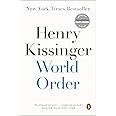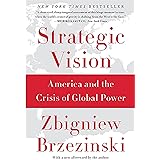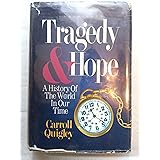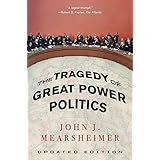
Enjoy fast, free delivery, exclusive deals, and award-winning movies & TV shows with Prime
Try Prime and start saving today with fast, free delivery
Amazon Prime includes:
Fast, FREE Delivery is available to Prime members. To join, select "Try Amazon Prime and start saving today with Fast, FREE Delivery" below the Add to Cart button.
Amazon Prime members enjoy:- Cardmembers earn 5% Back at Amazon.com with a Prime Credit Card.
- Unlimited Free Two-Day Delivery
- Streaming of thousands of movies and TV shows with limited ads on Prime Video.
- A Kindle book to borrow for free each month - with no due dates
- Listen to over 2 million songs and hundreds of playlists
- Unlimited photo storage with anywhere access
Important: Your credit card will NOT be charged when you start your free trial or if you cancel during the trial period. If you're happy with Amazon Prime, do nothing. At the end of the free trial, your membership will automatically upgrade to a monthly membership.
Buy new:
$18.99$18.99
Buy used:
$14.52





Download the free Kindle app and start reading Kindle books instantly on your smartphone, tablet, or computer - no Kindle device required.
Read instantly on your browser with Kindle for Web.
Using your mobile phone camera - scan the code below and download the Kindle app.

Follow the author
OK
The Grand Chessboard Paperback – Illustrated, December 6, 2016
Purchase options and add-ons
Bestselling author and eminent foreign policy scholar Zbigniew Brzezinski's classic book on American's strategic mission in the modern world.
In The Grand Chessboard, renowned geostrategist Zbigniew Brzezinski delivers a brutally honest and provocative vision for American preeminence in the twenty-first century. The task facing the United States, he argues, is to become the sole political arbiter in Eurasian lands and to prevent the emergence of any rival power threatening our material and diplomatic interests. The Eurasian landmass, home to the greatest part of the globe's population, natural resources, and economic activity, is the "grand chessboard" on which America's supremacy will be ratified and challenged in the years to come. In this landmark work of public policy and political science, Brzezinski outlines a groundbreaking and powerful blueprint for America's vital interests in the modern world.
In this revised edition, Brzezinski addresses recent global developments including the war in Ukraine, the re-emergence of Russia, and the rise of China.
-
Print length256 pages
-
LanguageEnglish
-
Publication dateDecember 6, 2016
-
Dimensions5.5 x 0.64 x 8.25 inches
-
ISBN-10046509435X
-
ISBN-13978-0465094356
-
Lexile measure1550L
The Amazon Book Review
Book recommendations, author interviews, editors' picks, and more. Read it now.
Frequently bought together

Similar items that may ship from close to you
From the Publisher
|
|
|
|
|---|---|---|
|
|
|
|
Editorial Reviews
Review
"As sobering as it is timely."―American Spectator
"This updated version of East-West geopolitics is worth taking seriously but it is also an amazing example of how a perspective can be revised without actually being rethought."―Kirkus Reviews
"The Grand Chessboard is the book we have been waiting for: a clear-eyed, tough-minded, definitive exposition of America's strategic interests in the post-Cold War world."―Samuel Huntington, Harvard University, author of The Clash of Civilizations and the Remaking of World Order
About the Author
Product details
- Publisher : Basic Books; 2nd edition (December 6, 2016)
- Language : English
- Paperback : 256 pages
- ISBN-10 : 046509435X
- ISBN-13 : 978-0465094356
- Lexile measure : 1550L
- Item Weight : 9.5 ounces
- Dimensions : 5.5 x 0.64 x 8.25 inches
- Best Sellers Rank: #108,555 in Books (See Top 100 in Books)
- #39 in International Diplomacy (Books)
- #74 in Globalization & Politics
- #186 in Military Strategy History (Books)
- Customer Reviews:
About the author

Discover more of the author’s books, see similar authors, read author blogs and more
Customer reviews
Customer Reviews, including Product Star Ratings help customers to learn more about the product and decide whether it is the right product for them.
To calculate the overall star rating and percentage breakdown by star, we don’t use a simple average. Instead, our system considers things like how recent a review is and if the reviewer bought the item on Amazon. It also analyzed reviews to verify trustworthiness.
Learn more how customers reviews work on Amazon-
Top reviews
Top reviews from the United States
There was a problem filtering reviews right now. Please try again later.
In the first edition, the author described the US as the hegemonic (dominant) nation and added, "America's global primacy is directly dependent on how long and how effectively its preponderance on the Eurasian continent is sustained." The author never mentions the military power underlying the primacy, but the factors which sustain power such as economic strength and prestige. From this vantage point, US hegemony has decreased since 1997, but we cannot be sure how much. Some of the decrease resulted from budget sequesters, some from lowered American morale (and lowered foreign esteem) due to the problematical war in Iraq and the financial crisis of 2007. (The author's 'Strategic Vision' spells this out in detail). Clearly power in this overall sense is difficult to evaluate. But the US remains dominant and this is as it should be. "A world without U.S. primacy will be a world with more violence and disorder and less democracy and economic growth than a world where the United States continues to have more influence than any other country in shaping global affairs." In a burst of plain speaking the author says the imperatives are "to prevent collusion and maintain security dependence among the vassals, to keep tributaries pliant and protected, and to keep the barbarians from coming together." (p.40)
The first task in understanding the strategic game is to identify the resources and dispositions of the players. The game is played on an oblong chessboard called Eurasia with the US on one side and China on the other. The author identifies five countries that are "major and active players" (France, Germany, Russia, China, and India) and other countries (Great Britain, Japan, and Indonesia) of lesser importance, which although important, do not qualify as major players. The distinction is in their political and diplomatic dynamism. The two major players on the Western side are France and Germany. Both are motivated by a vision of a united Europe, though they differ on how much and in what fashion such a Europe should remain linked to America. Five additional countries are "pivots": Turkey, Iran, Azerbaijan, and Ukraine. Their importance is in being adjacent to two or more important areas such as the Caspian Sea or another country's mineral deposits, frequently near to adjacent countries that are major players. Turkey is one example, adjacent to the Mediterranean and the Black Sea. South Korea, between China and Japan, is a Far Eastern pivot.
The author is concerned that the US-European alliance should be a true unity. So Washington must treat Europe (NATO and the European Union) as equal to it in all respects, even in view of the larger financial contributions of the US to NATO. To make Europe more united and more independent, America must "throw its weight behind those European forces that are genuinely committed to Europe's political and economic integration. [I don't know why Europe should need American help with this.] Such a strategy will also mean junking the last vestiges of the once-hallowed U.S.-U.K. special relationship." (p. 50) The demarcation between the European part of Eurasia and the Asian part is related to a system of human rights issues and an all-embracing domestic social and economic benefits. (This is explicitly stated in his book 'Strategic Vision".) The presence or lack of the system is part of "the international democratic and cooperative order." that is to be projected by an enlarging Europe into Eurasia. He considers Ukraine and the Baltic States to be European, while Turkey is on the way to becoming European (perhaps because it is a NATO member) and Russia is not so far along. Russia is considered rather savage and needs taming by Europe. I do not know the exact basis for his evaluations, but I cannot agree with him that Russia, a country that has produced Nobel prizewinning scientists and writers, should be rated below Turkey. My reason is that within common sense a country should be allowed to have its own values.
China and Japan are simpler to deal with than Europe because the situation is simpler and there are fewer alternatives. The author feels that America should be a natural ally of China because it has no designs on the Asian mainland and has historically opposed both Japanese and Russian encroachments on China. All the same, many Chinese see the US as constraining their country's influence merely by being so large and so powerful. Even if China grows at its rate of ten percent for 25 years it will still be be a very poor country. (Fact check: as of 2013, China's GDP per capita was $6807, higher than other Southeastern Asian countries while much lower than Japan's $38633.) There are contentious issues between China and other Asian countries but to me they appear small. Concerning the Taiwan issue, he suggests "one China, several systems", a natural addition to Hong Kong. But China is making this natural step difficult.
In the Epilogue, the author comments "The majority of Americans are largely skeptical of US involvement in world affairs." Being one of them, I understand their skepticism; the demands on the US seem excessive and contradictory.
Top reviews from other countries
Libro importante para complementar nuestra visión eurocéntrica y entender mejor las preocupaciones de Rusia. Importante tener en cuenta que esto es anterior a Putin y describe los desafíos que tenía Rusia por delante.
Los mapas y cuadros son imposibles de leer en la versión Kindle.
Eurasia is undeniably the center of global power. If the United States wishes to maintain its mantle as a global superpower, it must preserve its dominance of the continent.
Brzezinski exhibits the dangers to US primacy as France, Germany, Russia and China.
Should Europe unite, a goal that France and Germany continue to strive for, America would lose its center of authority on the continent. At present, Europe relies on American hegemony and leadership in its global policies. As 27 (previously 28) relatively small independent nations, the EU cannot negotiate on a global scale with the same authority as the US (or increasingly China). However as one nation and one voice, Europe would be able to dominate the global stage alongside the US, causing dual hegemony (perhaps even surpassing it with France’s global outlook). America must decide whether it is in its interest to support a strong Europe as an ally or prevent its unification, maintaining global mastery.
Russia’s modern history has left many scars on its national identity; from defeat in the Russo-Japanese war to the collapse of the Soviet Union. Perhaps most impotently the loss of Ukraine. This has left Russia with the gnawing question “what is Russia?” An empire? Not without Ukraine. An Ideology? Not without the Soviets. A Superpower? Not without either of the previous two. But the far more appropriate question for the US is ‘what should Russia be?’ America and the West must decide if they will embrace Russia, or leaver her in the cold. The answer will determine the future of American primacy, for better or worse.
In 1997 China was still emerging as a global power. Reading this work in 2021, it is hard to ignore Brzezinski’s prediction that ‘even by the year 2020, it is unlikely even under the best circumstances that China could become truly competitive in the key dimensions of a global power.’ It is true, that China is not yet a global power (it certainly has the muscle to be, but not yet the influence). However, one cannot shut one’s eyes to the rapidity with which China has risen to rival the US. China, not Russia, is the true threat to American primacy.
Brzezinski predicts in his conclusion that America will not remain the sole superpower forever. No one could have predicted in 1997 that the US would elect President Trump. Nor could they predict he would be replaced by Joe Biden. These historic elections do not bode well for the Pax Americana. With China on the rise, Russia in limbo and Europe stagnant, we wait with bated breath to see what is yet to come.














